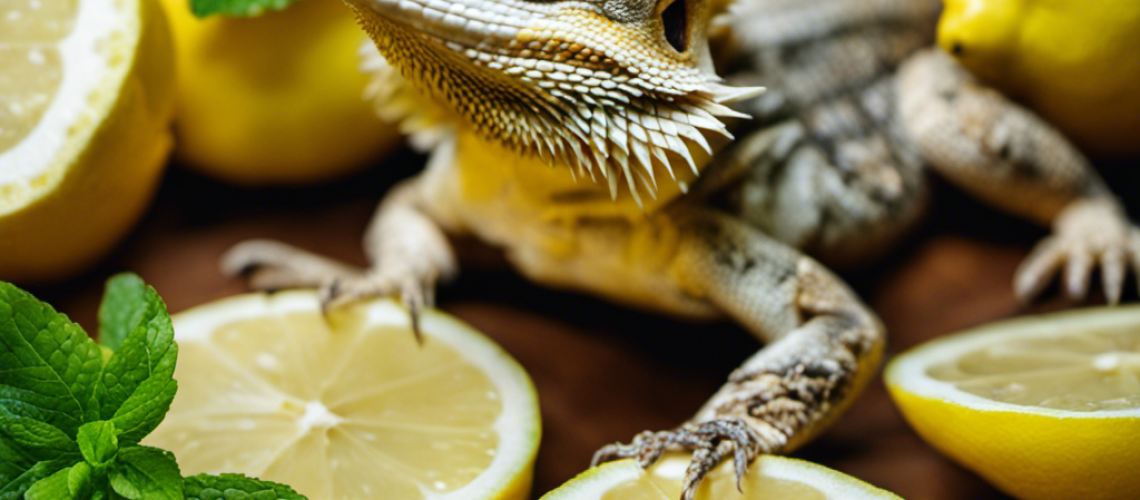Bearded dragons are popular pets that require a great deal of attention and care. Unfortunately, along with proper care comes the potential for unpleasant odors.
Fortunately, there are several ways to mitigate or eliminate these smells, providing a healthier environment for both the bearded dragon and its owner.
This article will provide 100% effective tips on how to get rid of bearded dragon smell.
Key Takeaways
- Regular cleaning and maintenance of the bearded dragon’s habitat is essential to eliminate odor.
- Proper grooming and hygiene practices, such as regular bathing and avoiding scented substrates, help reduce the smell.
- Providing a balanced diet and ensuring hydration for the dragon contributes to minimizing odors.
- Natural solutions like activated charcoal, baking soda, and essential oils can be used to remove unwanted smells in the dragon’s environment.
Identifying the Source of the Odor
Identification of the source of the odor is necessary to facilitate removal of the scent. Causes may include lack of proper sanitation, inadequate air circulation, or an improper diet.
To identify if these factors are at play, inspect your bearded dragon’s environment and look for signs such as soiled substrate, stagnant air pockets, or food debris.
If any of these are present, address them with a thorough cleaning and improved airflow in order to reduce smells.
Cleaning the Bearded Dragon’s Habitat
Regular maintenance of the habitat is essential for reducing odors. Cleaning should be done regularly to prevent buildup of debris and bacteria that can cause unpleasant smells. This may include wiping down surfaces, changing substrate, and removing feces and other material that can accumulate.
Cleaning supplies such as paper towels, sponges, and specialized cleaning solutions should be used with caution to avoid harm to the bearded dragon or its environment.
A regular cleaning schedule will help maintain a healthy habitat for your bearded dragon while also preventing unpleasant odors.
Grooming the Bearded Dragon
Proper grooming of a bearded dragon is important in order to maintain its health and wellbeing.
Bathing frequency should be determined by the size of the dragon, with larger dragons needing bathing every two weeks, while smaller ones should be bathed weekly.
Scented substrates should be avoided as they can irritate the animal’s skin and eyes. Instead, use an appropriate-sized container to provide water so that the dragon can soak regularly for hydration.
This way, it will not only help keep the beardie clean but also eliminate any possible odors.
Improving the Bearded Dragon’s Diet
Providing a balanced diet is essential for the health and wellbeing of a bearded dragon. To achieve this goal, it is important to consider the following:
- Establishing a regular feeding schedule
- Offering appropriate food choices (live insects, fruits, etc.)
- Supplementing with vitamin powders or drops
- Ensuring sufficient hydration
- Providing an environment that encourages natural behaviors.
With these steps in place, you can ensure your bearded dragon remains healthy and happy while minimizing unpleasant odors.
Utilizing Natural Solutions to Remove Odors
Utilizing natural solutions such as activated charcoal, baking soda, and essential oils can help to reduce odors in the environment of a bearded dragon. Reducing humidity and increasing ventilation are key factors in removing unwanted smells.
Activated charcoal helps absorb odors and moisture, while baking soda is well known for its deodorizing properties. Essential oils may also provide a pleasant aroma when used sparingly.
Proper hygiene is essential for maintaining a healthy living space for your bearded dragon and reducing odors.
Frequently Asked Questions
How Often Should a Bearded Dragon Be Bathed?
Bearded dragons should be bathed in shallow, warm water (no hotter than 80°F) every 1-2 weeks. Bathing frequency depends on the individual; however, too much bathing can dry out their skin.
What Is the Optimal Temperature for a Bearded Dragon’s Habitat?
The optimal temperature for a bearded dragon’s habitat is between 80 to 85 degrees Fahrenheit. Heat lamps and basking spots are important components of the tank setup, ensuring that your dragon’s heating requirements are met. This ensures a healthy, comfortable environment for your beloved pet.
What Is the Best Substrate for a Bearded Dragon’s Habitat?
When considering the best substrate for a bearded dragon’s habitat, it is important to consider safety and enclosure hygiene. Sand, paper towels or reptile carpet are all viable options that offer safe housing and ease of cleaning. Care should be taken to choose a substrate that suits the needs of the dragon while preserving optimal enclosure hygiene.
What Common Illnesses Can a Bearded Dragon Suffer From?
Bearded dragons can suffer from a variety of illnesses, including metabolic bone disease, respiratory infections, and parasites. To prevent these conditions, it is important to provide them with proper nutrition and housing as well as regular vet visits for preventative care.
What Is the Most Effective Way to Handle a Bearded Dragon?
The most effective way to handle a bearded dragon is by providing a proper diet and ensuring cage hygiene. This will ensure the animal’s well-being and promote healthy living. Keeping up with regular cleaning, as well as using appropriate substrate and temperature regulation are key components for successful care of the species.
Conclusion
Bearded dragons are a popular pet, but they can sometimes emit an unpleasant smell. Identifying the source of the odor and taking proper steps to reduce it is essential for ensuring the health and wellbeing of your dragon.
Cleaning their habitat regularly, grooming them properly, improving their diet, and utilizing natural solutions to remove odors are all effective methods for reducing or eliminating unpleasant smells associated with bearded dragons.
With care and diligence, these tips will help you maintain a healthy and odor-free environment for your beloved pet.






